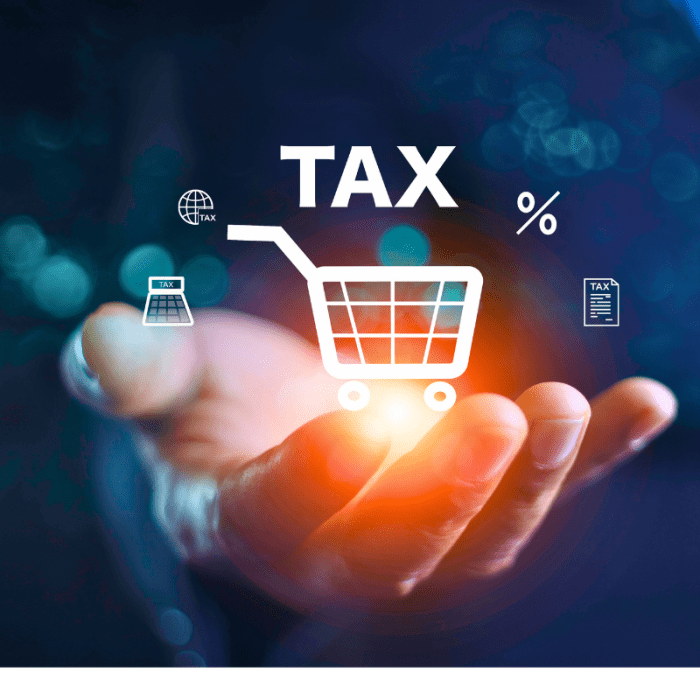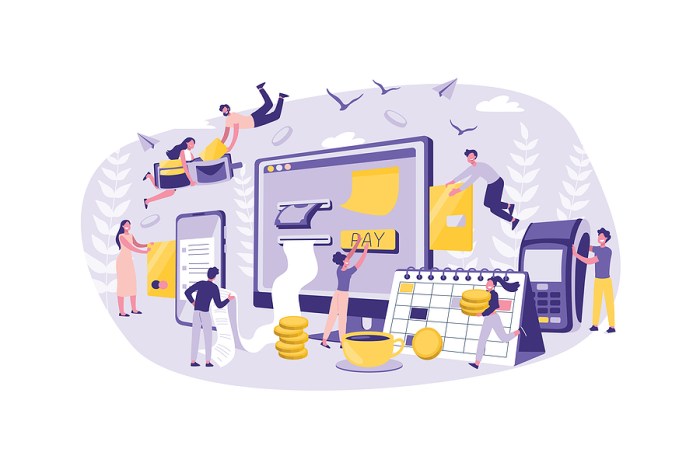Sales tax software for ecommerce – Running an e-commerce business involves navigating a complex web of regulations, and one crucial aspect often overlooked is sales tax. Successfully managing sales tax for your online store is vital for compliance, avoiding penalties, and building customer trust. This comprehensive guide delves into the intricacies of sales tax software for e-commerce, exploring its benefits, features, and how to choose the right solution for your needs.
We’ll also cover important aspects like sales tax nexus, calculating tax liabilities, and common pitfalls to avoid.
Understanding the Importance of Sales Tax Software for Ecommerce
E-commerce businesses operate across multiple jurisdictions, making manual sales tax calculations a daunting task. Sales tax software automates this process, ensuring accurate and timely tax reporting. This automation not only saves significant time and effort but also minimizes the risk of errors and associated penalties. Furthermore, robust sales tax software often provides insights into tax liabilities, helping businesses optimize their financial strategies.
Key Features to Look for in Sales Tax Software
When selecting sales tax software, consider these crucial features:
- Real-time Tax Calculation: The software should instantly calculate sales tax based on customer location and product details.
- Multi-State Compliance: Essential for businesses operating across multiple states, ensuring accurate tax calculations for each jurisdiction.
- Nexus Determination Tools: Software that assists in determining sales tax nexus, helping businesses understand their tax obligations in various states.
- Automated Reporting and Filing: Streamlining the process of generating and submitting sales tax reports to relevant authorities.
- Integration with Existing Systems: Seamless integration with your e-commerce platform, accounting software, and other tools for efficient data flow.
- Customer Support: Reliable customer support to address any questions or issues promptly.
- Data Security: Robust security measures to protect sensitive financial data.
Choosing the Right Sales Tax Software for Your Ecommerce Business
The ideal sales tax software depends on factors like business size, complexity, and location. Consider these factors when making your decision:

Source: withum.com
Factors to Consider When Evaluating Options
- Scalability: Ensure the software can adapt to your growing business needs.
- Pricing Models: Compare different pricing models, including subscription fees, per-transaction charges, or per-location fees.
- User-Friendliness: Choose software with a user-friendly interface that allows for easy navigation and data entry.
- Customization Options: Assess the extent to which the software can be customized to match your specific business requirements.
Common Pitfalls and Solutions
Navigating sales tax can be tricky. Here are some common pitfalls and how to avoid them:
Miscalculating Tax Liabilities, Sales tax software for ecommerce
Sales tax software can help prevent miscalculations. Using a robust solution ensures accurate calculations based on various factors.
Ignoring Sales Tax Nexus
Understanding and adhering to sales tax nexus rules is crucial. Consult with a tax professional or use software with nexus determination tools to avoid penalties.
Frequently Asked Questions (FAQ)
- Q: How much does sales tax software cost?
A: Pricing varies significantly based on features, number of locations, and transaction volume. Many providers offer different subscription plans.
- Q: Can I use sales tax software with my existing e-commerce platform?
A: Many sales tax software solutions integrate with popular e-commerce platforms like Shopify, WooCommerce, and Magento.
- Q: What if I make a mistake in my sales tax reporting?
A: Contact the relevant tax authorities promptly to understand correction procedures. Seeking professional guidance is recommended.
- Q: How can I determine my sales tax nexus?
A: Consult the tax laws of each state where your business operates or use sales tax software with nexus determination tools.
Conclusion and Call to Action
Managing sales tax for your e-commerce business is crucial for compliance and financial health. Investing in robust sales tax software can significantly simplify the process, ensuring accuracy and minimizing risks. Choose a solution that aligns with your business needs, budget, and future growth projections. Contact us today for a free consultation to explore tailored sales tax solutions for your business.

Source: budgetease.biz
We can help you navigate the complex world of sales tax, ensuring smooth and compliant operations.
Resources:
Detailed FAQs: Sales Tax Software For Ecommerce
How can I choose the right sales tax software for my business?
Consider factors like the number of products, sales volume, and the states or countries you operate in. A reputable software provider with robust features and good customer support will be a valuable asset. Review different software options and request demos to see which best suits your specific needs.
What if I have products shipped to multiple states?
Many sales tax software solutions automatically handle multi-state shipping by tracking the destination of each order. This feature is crucial for ensuring compliance with various sales tax regulations.
Does the software integrate with my existing accounting system?
Ideally, the sales tax software should integrate with your accounting software to streamline data flow and reduce manual data entry. Look for seamless integration options to ensure accuracy and efficiency.

Source: freecashflow.io
What are the typical costs associated with sales tax software?
Software costs vary depending on the features, support, and level of service offered. Look for pricing models that align with your business needs and budget. Often, free trials or demos are available to evaluate the software’s functionality before committing to a subscription.